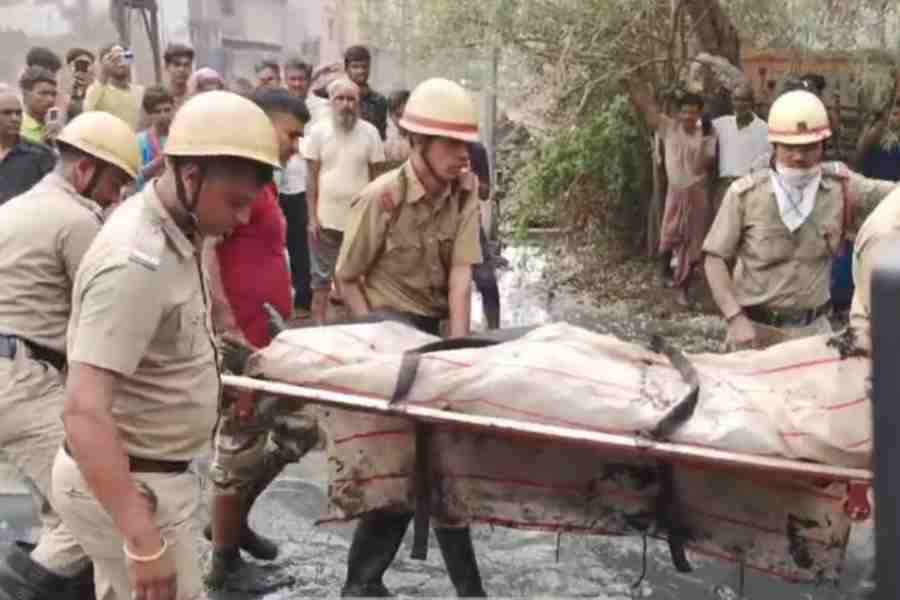The preliminary post-mortem opinion on the three labourers who died in an underground sewer at the Kolkata Leather Complex in Bantala on Sunday said the deaths were from inhaling poisonous gases.
Police said tissue samples of the three have been collected and would be sent for a histopathology test to ascertain the nature of poisoning that caused the deaths.
“A lot of hydrogen sulphide is generated from the tanneries. Inhaling fumes of concentrated hydrogen sulphide could be fatal. But we will wait for the histopathological report to confirm the nature of poisonous fumes that caused the deaths,” said an officer of Calcutta Leather Complex.
The Murshidabad-based contractor who had engaged the labourers, apparently without any precautions, has been arrested on charges of negligence.
Alimuddin Sheikh, 60, from Lalgola, Murshidabad, has been arrested for not following the safety protocol that caused his labourers’ death, the police said.
Cops said oxygen masks and cylinders, which may have saved the labourers, should have been provided to them.
The deaths came four days after the Supreme Court prohibited manual scavenging and manual sewer-cleaning in six metro cities, including Calcutta.
The workers were engaged to clean clogged underground sewers in front of plot number 452, zone 7, at the leather
complex.
The three labourers who could not survive the fumes in the pipeline were identified as Hasibur Rahaman, 26, and Farjen Seikh, 60, both from Lalgola in Murshidabad, and Suman Sardar, 30, from Najat, North 24-Parganas.
The bodies could be taken out of the pipeline after a four-hour operation by staff of the fire and emergency services and disaster management group personnel of Kolkata Police.
The job was part of a larger project of ₹50 crore, said the police.
This is the second such tragedy in a decade at the leather complex. Toxic fumes killed three people in 2015 while they were cleaning an overflowing pit at one of the leather-processing units.
The Centre banned the use of manual labour to clean dry toilets in 1993. In 2013, the law was amended to ban manual labour in cleaning sewers, ditches, pits and septic tanks.
On January 29, the Supreme Court passed an order prohibiting manual sewer-cleaning and scavenging in Delhi, Mumbai, Chennai, Bengaluru, Hyderabad and Calcutta.
The special bench of Justice Sudhanshu Dhulia and Justice Aravind Kumar instructed the municipal commissioners of the six metros to submit affidavits by February 13 spelling out the compliance measures taken. The next hearing is on February 19.











